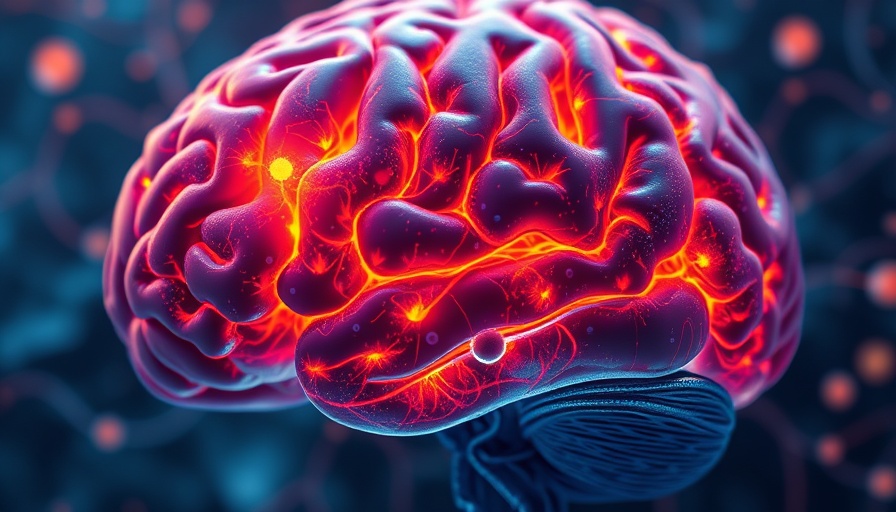
The Unseen Effects of Heavy Drinking on the Brain
Recent research from the American Academy of Neurology sheds light on the disturbing impact of heavy alcohol consumption on brain health. Individuals who consume eight or more alcoholic drinks per week might be at an increased risk for brain lesions, specifically hyaline arteriolosclerosis, which are linked to cognitive impairments such as memory and thinking problems. While the study illustrates a correlation rather than causation, it raises urgent questions about alcohol consumption's long-term consequences.
Understanding Hyaline Arteriolosclerosis
Hyaline arteriolosclerosis refers to the hardening and narrowing of small blood vessels, impacting blood flow to the brain and ultimately leading to tissue damage. This condition appears as lesions and is emblematic of larger vascular issues affecting cognitive functions. The research analyzed data from 1,781 participants, predominantly older adults, emphasizing how aging and alcohol interact in ways that may jeopardize neurological health.
Comparative Insights on Drinking Habits
The study categorized participants by their drinking habits: never drinkers, moderate drinkers (up to seven drinks per week), heavy drinkers (eight or more drinks), and former heavy drinkers. Notably, 50% of former heavy drinkers exhibited vascular brain lesions after adjusting for other health factors. This statistic is crucial for tech professionals and entrepreneurs, who often lead high-energy lifestyles that may come with increased alcohol consumption.
Potential Long-term Implications for COGNITIVE Health
With heavy drinkers facing a staggering 133% higher odds of developing vascular lesions versus never drinkers, the implication is clear: heavy alcohol use should not be taken lightly. Beyond just short-term memory concerns, implications of cognitive decline could hinder productivity and creativity, two essential components for success in tech and health-related fields. As leaders, being mindful of drinking habits could be crucial for fostering both personal and professional health.
Future Considerations for Health and Productivity
As awareness grows regarding alcohol’s impact on cognitive health, professionals across industries, especially in healthcare and technology, must reconsider not only their drinking habits but also the environments they create. Be it through wellness programs or healthier social gatherings, there’s an opportunity here to innovate and prioritize brain health.
Ultimately, this study serves as a clarion call for introspection—whether in the vibrant tech hubs or deep in healthcare facilities, fostering an understanding of alcohol’s effects could pave the way for healthier work environments.
 Add Row
Add Row  Add
Add 




Write A Comment